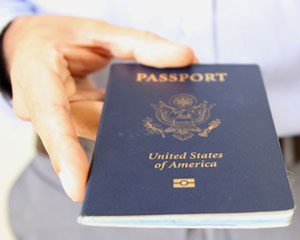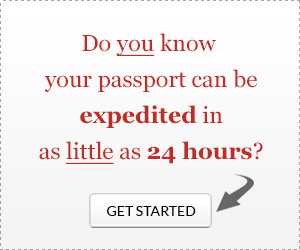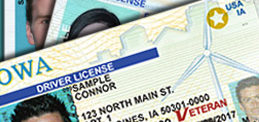 |
This week’s announcement doesn’t mean that the plan to privatize air traffic control will go into effect immediately. Instead, the plan will likely be included in legislation to reauthorize the FAA. It will have to pass Congress before it will become a reality.
Assuming that the privatization of air control goes into effect, what will it mean for you as a traveler?
What Does Air Traffic Control Do?
When you travel by air, you will encounter quite a few people whose job it is to keep you safe. You’ll have your ticket, passport, and carry-on bags checked by Transportation Security Administration (TSA) officers. You’ll see police officers patrolling the inside and outside of the airport. You may get to greet the pilot and co-pilot as you board your flight. And don’t forget about flight attendants! They’re not just there to bring you Diet Coke and pretzels. A flight attendant’s most important duty is making sure that safety regulations are followed in the cabin of your flight, and to take charge in case of emergency. But you won’t see some of the people with the most crucial role in keeping you safe in the air – the air traffic controllers and other employees of the Federal Aviation Administration.
 In a nutshell, air traffic controllers are in charge of directing aircraft traffic both on the ground and in the air. They supervise all civil aviation. Civil aviation comprises all non-military flights, both commercial aviation (passenger airlines and major cargo operations) and general aviation (private, charter, and corporate aircraft). They monitor all flights to make sure that aircraft don’t collide either in the air or on the ground. They maintain communication with pilots to help aircraft avoid hazards like thunderstorms. The FAA also sets aircraft routes — if you don’t have noisy airplanes flying over your house all day, thank the FAA!
In a nutshell, air traffic controllers are in charge of directing aircraft traffic both on the ground and in the air. They supervise all civil aviation. Civil aviation comprises all non-military flights, both commercial aviation (passenger airlines and major cargo operations) and general aviation (private, charter, and corporate aircraft). They monitor all flights to make sure that aircraft don’t collide either in the air or on the ground. They maintain communication with pilots to help aircraft avoid hazards like thunderstorms. The FAA also sets aircraft routes — if you don’t have noisy airplanes flying over your house all day, thank the FAA!
Controllers monitor air traffic in a number of ways. At airports, some air traffic control is done visually. Controllers both on the tarmac and in the air traffic control tower will literally keep their eyes on the planes. The FAA also requires all flights, commercial and private, to file a flight plan in advance of takeoff. But by far, the most important way that the FAA monitors flights is by radar.
Why Does Trump Want to Privatize Air Traffic Control?
In his speech on Monday, Trump minced no words about the Federal Aviation Administration. He called the current air traffic control framework “an ancient, broken, antiquated, horrible system that doesn’t work.” (We would argue with that, as US commercial aviation is a remarkably safe way to travel!) The biggest complaint about the current state of air traffic control is that modernization efforts have not gone as quickly as some in government would have hoped.

The FAA has been working on a multi-faceted modernization program called NextGen. One major part of NextGen will be to replace the radar-based air control with a GPS-based system. Under the current radar system, aircraft can’t fly directly from point A to point B. Instead, they have to fly from one radar waypoint to another, so that the FAA will never lose track of them. With a GPS monitoring system, more direct routes would become possible. This would also make it possible to have more flights in the air at once, and those flights would be shorter and more fuel-efficient.
Sounds great, right? The only problem is that it’s a very complex set of systems that have to be put into place, for a very important purpose. The life of every air traveler depends on it! But Trump is disgusted that NextGen has not been pushed through quickly, and he believes that a private corporation could do the job faster.
The US would not be the first country to privatize air traffic control. Germany, Italy, and Luxembourg are among the countries that have air traffic control run by a government-owned private corporation, which is funded by user fees included in air ticket prices. The plan that has been put forward by the US presidential administration is very similar to the system currently used in Canada. Canada’s private non-profit air traffic control company, Nav Canada, has been successful in bringing out new technologies quickly, without government red tape. This has allowed for shorter, more fuel-efficient flights while maintaining safety.
Would Privatizing Air Traffic Control be Good for Travelers?
Experts are split as to whether Trump’s plan to privatize air traffic control would be good for travelers and the aviation industry. Of the two major air traffic controller unions, the National Air Traffic Controllers Association is in favor of privatization, but the Professional Aviation Safety Specialists union opposes it. Most of the major US airlines have backed privatization plans, with the notable exception of Delta.
We know what you’d results you’d like to see. We want air travel to remain extremely safe, but we’d all love to have shorter, more efficient flights. It would be great to have our ticket prices drop because the airline’s fuel cost is less. But would we see lower ticket prices? Delta Airlines released a study last year suggesting that privatization of air traffic control could result in a 20+ percent increase in passenger fees.
Privatizing air traffic control is far from a done deal. Attempts at privatization have been made since the Clinton administration, and none have yet succeeded. We’ll be keeping a close eye on the development of this story. If there is news that affects travelers, it’s important to us, and we’ll bring it to you!
Source: https://passportinfo.com/trumps-plan-to-privatize-air-traffic-control/

 This month, the laptop ban once again dominates the travel news! In our May roundup of the most important travel stories, we'll take an in-depth look at the ban on electronics in airplane cabins. (This is a hot topic - stay tuned for more updates from PassportInfo.com!)
This month, the laptop ban once again dominates the travel news! In our May roundup of the most important travel stories, we'll take an in-depth look at the ban on electronics in airplane cabins. (This is a hot topic - stay tuned for more updates from PassportInfo.com!) The current laptop ban was put into place due to intelligence information that indicated that terrorists are developing bombs that can be hidden inside a laptop. The highly classified information that Donald Trump shared with Russian officials recently included many sensitive details about this plot. The threat is being taken seriously enough that the Department of Homeland Security is considering extending the in-cabin ban on electronics. Proposals to enact a laptop ban on US-bound flights originating in Europe, or even on all international flights to the US, have been discussed.
The current laptop ban was put into place due to intelligence information that indicated that terrorists are developing bombs that can be hidden inside a laptop. The highly classified information that Donald Trump shared with Russian officials recently included many sensitive details about this plot. The threat is being taken seriously enough that the Department of Homeland Security is considering extending the in-cabin ban on electronics. Proposals to enact a laptop ban on US-bound flights originating in Europe, or even on all international flights to the US, have been discussed.
 If you're applying for your first passport, a child's passport, or for a replacement for a lost, stolen, or damaged passport, your first stop will be a Passport Acceptance Facility. From
If you're applying for your first passport, a child's passport, or for a replacement for a lost, stolen, or damaged passport, your first stop will be a Passport Acceptance Facility. From Although President Trump’s revamped travel ban on travelers from select Muslim-majority nations has been
Although President Trump’s revamped travel ban on travelers from select Muslim-majority nations has been 



 The reason REAL ID matters now is that states can only issue REAL ID driver’s licenses or non-driver IDs to people who are either US citizens or legal US residents. Most states will still issue driver’s licenses to people who can’t prove their residence status, but those licenses will be the non-REAL ID version. They won’t have the star!
The reason REAL ID matters now is that states can only issue REAL ID driver’s licenses or non-driver IDs to people who are either US citizens or legal US residents. Most states will still issue driver’s licenses to people who can’t prove their residence status, but those licenses will be the non-REAL ID version. They won’t have the star!
